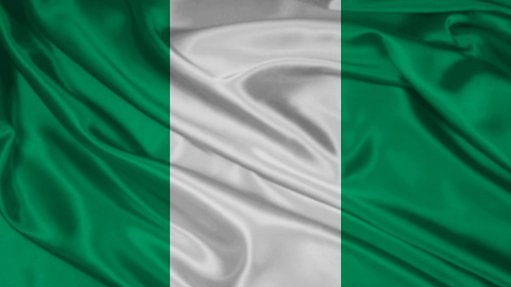
JSE-listed food products manufacturer Tiger Brands on Wednesday said it had progressed turnaround initiatives at its flailing Nigerian subsidiary; however, Dangote Flour Mills (DFM) was only expected to break into positive financial territory two years from now.
After admitting earlier this year that it “underestimated” the challenge of operating in Nigeria, Tiger Brands embarked on a turnaround plan that was reflecting quarterly improvements after DFM’s earnings plunged in the first half of the financial year under review.
While the unit’s financial results for the full year to September 30, were negatively hit by nearly R1-billion in impairments, with break-even only expected after 2016/17, there were encouraging signs of improvement, CEO Peter Matlare said at Tiger Brands’ results presentation on Wednesday.
The net reported loss before interest and taxes for the Nigerian business improved 27%, from R384-million in the 2013 financial year, to R282-million in the year under review.
The unit’s operating losses before interest, nonrecurring items and foreign exchange gains steadily reduced from ₦1.4-billion in the first quarter of the 2014 financial year, to ₦1.1-billion and ₦900-million in the second and third quarters respectively, before falling to ₦700-million in the final quarter.
The Nigerian subsidiary posted an 11% rise in turnover to R3.1-billion for the year under review, up from R2.8-billion the year before.
Including the profit contribution from DFM subsidiary Dangote Agrosacks of R30-million, down from R61-million in 2013, profits attributable to ordinary shareholders decreased 22% to R2-billion and earnings per share (EPS) from total operations fell 22% to 1 262c.
DFM, which had new management in place, reviewed the utilisation levels of its assets and, based on current market realities, decided to further impair more of its manufacturing assets.
The impairment of R105-million during the second half of the year followed on from the R849-million impairment of the entire goodwill and other intangibles during the first half of the year on the back of underperformance and excess milling capacity.
“There are encouraging signs of improvement as remedial actions to improve product quality, reduce the fixed-cost base and drive top-line growth start to bear fruit,” Matlare averred.
Tiger Brands business executive Noel Doyle, who was tasked with reviving the Nigeria-based business, explained that the execution of operational initiatives resulted in the progressively lower losses.
The group strengthened its on-the-ground management team, with a new CFO, CEO and head of customer relations. The group was close to appointing a new supply chain executive, while a search was under way for a new marketing head.
In December, DFM sold its interest in packaging subsidiary Dangote Agrosacks for R497-million. Tiger Brands also acquired an additional 2.3% interest in DFM for R74-million as part of the mandatory offer to DFM minority shareholders following the initial acquisition of the group’s interest in DFM in October 2012.
DFM’s core was also stabilised to facilitate the development of an entry strategy for new categories and the development of an “ideal” route to market for the existing core.
The business case for DFM’s entry into adjacent and related categories was expected to be finalised early in the 2015 financial year.
“We have started to grow roots in Nigeria,” Doyle commented.
Matlare added: “Directionally, [we are heading] where we want to be.”
This comes as the company prepared to mitigate what it believed would be the most challenging year in the fast-moving consumer goods industry, as Nigeria faced an election year, with instability in the North continuing and falling oil revenues potentially pressurising the naira in 2015.
However, Tiger Brands stood firm in its focus of fixing and growing the Nigerian business.
“Tiger Brands remains committed to the Nigerian market and will continue to fix and optimise the DFM business, while investing into adjacent categories that are expected to deliver long-term profitable growth,” Matlare said.
The group’s prospects for growth in the rest of Africa also remain promising.
Excluding Nigeria, Tiger Brands’ exports and international businesses continued to reflect “pleasing growth” as it increased turnover by 16% to R4.6-billion and operating income by 20% to R691-million in the period under review.
Overall, Tiger Brands achieved “a solid set of results in a difficult trading environment”, rallying during the second half of the year after a subpar performance in the first six months of 2014.
Group turnover increased 11% to R30.1-billion, underpinned by 4% volume growth and below inflationary pricing of 5%.
Operating income increased 15% to R3.6-billion, with the group’s overall operating margin improving from 11.4% to 11.8% during the 12-month period to September.
Headline earnings per share (HEPS) from total operations increased 11% to 1 816c, while HEPS from continuing operations rose 15% to 1 804c.
However, EPS from continuing operations declined by 21% to 1 243c, largely as a result of impairments relating to the group’s investment in DFM.
The domestic businesses grew operating income by 7% to R3.3-billion.
Tiger Brands reported a “strong” balance sheet, with continuous cash generation, which, during the period under review, improved to R4.2-billion.
Tiger Brands declared a dividend of 940c a share for the year.